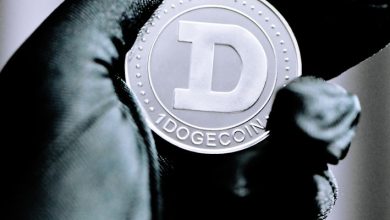The Future of Decentralized Derivatives in DeFi

- Understanding Decentralized Derivatives in DeFi
- Challenges and Opportunities in Decentralized Derivatives
- The Impact of Decentralized Derivatives on Traditional Finance
- Regulatory Considerations for Decentralized Derivatives in DeFi
- Innovations Driving the Future of Decentralized Derivatives
- Risks and Rewards of Engaging in Decentralized Derivatives
Understanding Decentralized Derivatives in DeFi
Decentralized derivatives in DeFi, also known as decentralized finance, refer to financial contracts that derive their value from an underlying asset or assets. These derivatives are built on blockchain technology, allowing for peer-to-peer trading without the need for intermediaries. Understanding how decentralized derivatives work is crucial for participants in the DeFi ecosystem.
One key aspect of decentralized derivatives is their ability to offer a wide range of financial products, including options, futures, and swaps. These products allow users to hedge against price fluctuations, speculate on asset prices, and manage risk in a decentralized manner. By leveraging smart contracts, decentralized derivatives ensure trustless and transparent execution of trades.
Participants in the DeFi space can access decentralized derivatives platforms to trade these financial products. These platforms typically require users to connect their cryptocurrency wallets, such as MetaMask, to interact with the smart contracts that power the derivatives. Users can then trade derivatives directly with other participants on the platform.
Decentralized derivatives in DeFi have the potential to revolutionize the traditional financial system by providing a more efficient, accessible, and transparent way to trade financial products. As the DeFi ecosystem continues to grow, decentralized derivatives are likely to play an increasingly important role in shaping the future of finance.
Challenges and Opportunities in Decentralized Derivatives
Decentralized derivatives in the realm of decentralized finance (DeFi) present both challenges and opportunities for users and developers alike. As the DeFi space continues to evolve, it is essential to understand the potential hurdles and advantages that come with decentralized derivatives.
- One of the challenges in decentralized derivatives is the issue of liquidity. Liquidity pools for derivatives may not always be deep enough to accommodate large trades, leading to slippage and potential losses for traders.
- Another challenge is the lack of regulatory clarity surrounding decentralized derivatives. This uncertainty can deter institutional investors from participating in these markets, limiting overall growth and adoption.
- On the flip side, decentralized derivatives offer unique opportunities for users to access a wide range of financial instruments without relying on traditional intermediaries. This can lead to greater financial inclusion and democratization of access to sophisticated investment products.
- Decentralized derivatives also provide users with increased transparency and security, as transactions are recorded on the blockchain and smart contracts ensure trustless execution of trades.
Overall, the challenges and opportunities in decentralized derivatives highlight the need for continued innovation and collaboration within the DeFi ecosystem. By addressing liquidity issues, navigating regulatory hurdles, and leveraging the unique benefits of decentralization, the future of decentralized derivatives in DeFi looks promising.
The Impact of Decentralized Derivatives on Traditional Finance
The rise of decentralized derivatives in the DeFi space has raised questions about its potential impact on traditional finance. Decentralized derivatives offer a new way to trade financial instruments without relying on intermediaries such as banks or brokers. This shift towards decentralization has the potential to disrupt traditional financial markets and change the way we think about investing and trading.
One of the key impacts of decentralized derivatives on traditional finance is the disintermediation of financial transactions. By eliminating the need for intermediaries, decentralized derivatives can reduce costs and increase efficiency in the trading process. This could lead to lower fees for investors and traders, as well as faster settlement times for transactions.
Another impact of decentralized derivatives on traditional finance is the democratization of access to financial markets. With decentralized derivatives, anyone with an internet connection can participate in trading and investing, regardless of their location or financial status. This could open up new opportunities for individuals who were previously excluded from traditional financial markets.
Furthermore, decentralized derivatives could also increase transparency and security in financial transactions. Because transactions are recorded on a public blockchain, there is a higher level of transparency compared to traditional financial markets. Additionally, the use of smart contracts in decentralized derivatives can help reduce the risk of fraud and manipulation, enhancing the security of financial transactions.
Overall, the impact of decentralized derivatives on traditional finance is still evolving. While there are potential benefits to be gained from this new technology, there are also challenges and risks that need to be addressed. As decentralized derivatives continue to grow in popularity, it will be important for regulators and market participants to adapt to this new paradigm in finance.
Regulatory Considerations for Decentralized Derivatives in DeFi
When considering the future of decentralized derivatives in DeFi, it is crucial to take into account the regulatory landscape. The decentralized nature of DeFi platforms presents unique challenges in terms of compliance and oversight. Here are some key regulatory considerations to keep in mind:
- Transparency: Ensuring transparency in the operation of decentralized derivatives platforms is essential to build trust with users and regulators alike.
- Compliance: DeFi projects must adhere to relevant regulations to avoid legal issues and ensure the sustainability of their operations.
- Security: Implementing robust security measures is crucial to protect user funds and data from potential breaches.
- KYC/AML: Know Your Customer (KYC) and Anti-Money Laundering (AML) procedures are important for preventing illicit activities on DeFi platforms.
- Smart Contract Audits: Regular audits of smart contracts can help identify and address vulnerabilities that could compromise the integrity of decentralized derivatives.
By taking these regulatory considerations into account, DeFi projects can navigate the evolving regulatory landscape and build a foundation for sustainable growth in the decentralized derivatives market.
Innovations Driving the Future of Decentralized Derivatives
The future of decentralized derivatives in DeFi is being shaped by various innovations that are driving the evolution of this rapidly growing sector. These advancements are paving the way for new possibilities and opportunities in the world of decentralized finance.
One of the key innovations driving the future of decentralized derivatives is the development of sophisticated smart contract technology. These smart contracts enable the creation and execution of complex derivative contracts without the need for intermediaries, making the process more efficient and cost-effective. This technology is revolutionizing the way derivatives are traded and settled in DeFi.
Another innovation that is shaping the future of decentralized derivatives is the integration of decentralized oracles. Decentralized oracles provide reliable and accurate external data feeds to smart contracts, ensuring that derivative contracts are settled accurately and fairly. This integration enhances the security and trustworthiness of decentralized derivatives, making them more attractive to investors and traders.
Furthermore, the rise of decentralized autonomous organizations (DAOs) is also driving the future of decentralized derivatives. DAOs enable decentralized governance and decision-making processes, allowing participants to have a say in the development and management of derivative protocols. This democratized approach empowers users and fosters community involvement in the evolution of decentralized derivatives.
Overall, these innovations are propelling the future of decentralized derivatives in DeFi towards greater efficiency, transparency, and accessibility. As the sector continues to evolve, we can expect to see even more groundbreaking advancements that will further revolutionize the world of derivatives trading in the decentralized finance space.
Risks and Rewards of Engaging in Decentralized Derivatives
Engaging in decentralized derivatives in DeFi can offer both risks and rewards for participants. It is important to carefully consider these factors before getting involved in this space.
One of the main risks of decentralized derivatives is the potential for smart contract vulnerabilities. Due to the complex nature of these financial instruments, there is a higher risk of bugs or exploits in the code that could result in financial losses for users. It is crucial to thoroughly audit the smart contracts and only interact with platforms that have been vetted by reputable security experts.
Another risk to consider is the volatility of the underlying assets. Decentralized derivatives are often tied to cryptocurrencies, which are known for their price fluctuations. This can lead to significant losses if the market moves against your position. It is important to have a solid risk management strategy in place to protect your investment.
On the flip side, engaging in decentralized derivatives can also offer rewards for savvy investors. These financial instruments allow for greater flexibility and customization compared to traditional derivatives markets. Users can access a wide range of assets and trading strategies that may not be available in centralized platforms.
Additionally, decentralized derivatives can provide opportunities for yield farming and passive income generation. By providing liquidity to decentralized exchanges or participating in liquidity mining programs, users can earn rewards in the form of trading fees or governance tokens. This can help offset some of the risks associated with decentralized derivatives trading.
In conclusion, the future of decentralized derivatives in DeFi holds promise for those willing to navigate the risks and seize the rewards. By staying informed, conducting thorough research, and implementing sound risk management practices, participants can capitalize on the opportunities presented by this innovative financial ecosystem.



